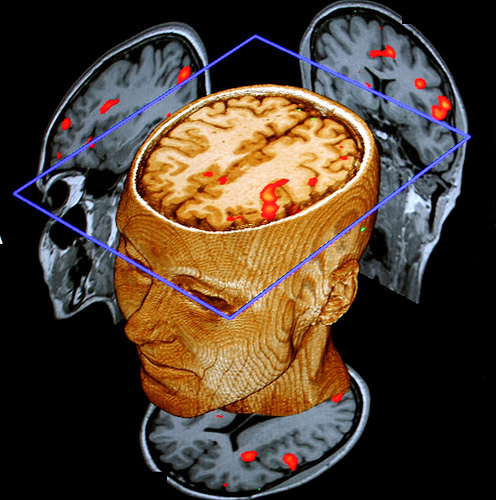Hello, I’m Italian and I’m reading what I understood to be a classic in American HIstory. I’m throug 100 pagesi in and I have the feeling that the author is a bit too partisan and unbalanced. Sometimes I feel that he had already decided what happened and then he tries to find facts that confirm his prejudices.
Hence, I’m asking if someone out there knows another book about the same subjecst that is not at all celebratory toward America, actually I’m looking for a book that is very critic and severe toward America, but at the same time that is more balanced. Any advice?
(Sorry if this message could sound confused or badly written, I’m not mother tongue and, also, the feeling toward the book is there but still blurry, but there’s something about this book that doesn’t convince me.)
Saying you’re looking for a critical alternative sounds strange to this American. Here, that book is the critical alternative. It’s the counterpoint to all the toxic conservative propaganda we’re spoonfed daily. Propaganda that tells us that straight, white, Christian, American men are not only the saviors of democracy, but also the Universe, that God, guns, and money will save us all. That book tells the stories we’re taught to deny. If it doesn’t convince you, it’s because it goes against everything America wants you to believe. If you’re just looking to be mad, turn on Fox News. They’ll tell you plenty of things that are “wrong” with America.
And you don’t see how what you just wrote here could be seen as biased? I think OP’s looking for something outside that point of view you just espoused.
That is the book that is very critical and severe toward the United States. I think the problem is that that book was written as a counterpoint to the history of the United States we learn in secondary school. If you haven’t learned U.S. history from a U.S. high school history textbook, it is going to feel unbalanced, prejudiced, because you are not the target audience, who has grown up with an uncritical, unbalanced, prejudiced but in the other way, curriculum. I would imagine a book by a European scholar of U.S. history would have more potential to give a neutral outside but critical point of view.
That makes sense
Very much this. I was an exchange student in the US in 2005 and my US history teacher (yes, their history classes are commonly split between us and “rest of the world”) exclusively worked with excerpts from Zinn.
I understood once I leafed through the official textbook. It was about as bad as you can imagine.
So yes, Zinn is far from “objective” or “neutral”. It’s a deliberate choice because
a) it’s supposed to counterbalance the terribly whitewashed school books and b) there’s a case to be made that no text, not even scientific ones, is ever truly objective or neutral because reality is a construct.
The latter is a more philosophical debate, but nonetheless an important one. Since there is no single objective truth, you’ll usually dare better by considering varying interpretations of “truth” before making your mind up.
In other words: you’ll never get the full picture, but if you assemble enough puzzle pieces you increase your chances of understanding the bigger picture, and, more importantly, you’ll gain a sense for when somebody is just off their rocker.
Well, you don’t have to get to “reality is a construct” with a history textbook. No textbooks can include the entire past. History is made at a constant rate and you have to learn it faster than it is made. So history textbooks by definition have to omit some things, and bias can always creep in when you choose which things to include or omit.
That said, it’s really important that Americans read Howard Zinn. We still have people who don’t have a proper understanding of why the Civil War was fought. Or the Revolutionary War. Or the Iraq War.
If you average a lie with the truth do you get a more accurate truth or a less accurate one?
How did you jump from a discussion about opposing perspectives on a single, unknowable truth to “one must be right and everything else a lie”?
I didn’t?
I mean, you’re going back a to true/false dichotomy.
Good point I should embrace the only thing real is our outrage truth of our society. No wonder Zinn is so popular. Hey let’s save some time. Whatever strawman you want me to make why don’t you use the power of imagination and make it real? That way I say what you want me to say so you can deliver the counter-arguments you want to make.
Fuck truth, we don’t need it. Go read People’s History, use horse dewormer to cure Covid, only eat “organic”, and deny that our planet is burning.
If I recall correctly (and it’s been over a decade since I read that one), Zinn is quite clear from the onset about his stance. (Even the title makes it evident that his perspective isn’t going to follow the traditional USA history narrative.) He sustains his points with empirical evidence, so I would hesitate to call it prejudiced. But there are some issues with some of his sources. (I think Matthew Restall may address some of those.)
How about trying out James Loewen’s Lies My Teachers Told Me? That book explains what I think Zinn was attempting to problematize: the blind acceptance of the biases within historical texts. Loewen aims directly at the USA secondary educational system in particular. You will learn a lot about USA history and why it has been written from a specific angle.
If you’re not opposed to looking in on a Reddit thread, askhistorians hsa it pop up now and again. They have “flaired users,” who, with few exceptions tend to be credentialed academics, typically younger Masters degree holders and/or PhD candidates (best I can tell), and with no love for the American right. Their general consensus is that the book is not “wrong,” but it lacks context and is not very useful as history, and particularly not as someone’s introduction to American history.
Maybe it would help if you gave examples?
im an american and had never heard of this book before so i had to look it up. it seems extremely impressive that someone would undertake such a breadth of american experiences through its entire history. however, i also saw a lot of criticism that matches what you described. ill give you the same advice id give anyone studying any history: no book is perfect. if you really want to know as much as you can, you’ll have to read a ton of books from a ton of different sources. plenty of people love criticizing america, its very easy to do, but most authors wont try to write with such the breadth that this guy has, due to it often including bias and poor sources. its an easy thing to do poorly. if you want a factual overview of american history, id go for a textbook. you can then deep dive into anything that interests you. if you are interested in varying perspectives, there are plenty of african american, native american, feminist, etc. books. you can look up plenty of different book lists online. just look up the author/book before you leave, as there are plenty of frauds. hope that helps! whats gotten you interested in american history?
Hello,
Maybe a question to crosspost to !history@mander.xyz too!
deleted by creator
Yes, you are right. But it seemed very quiet there.
I do care aboutwhat is almost true. One gathers the facts and in the end gives an interpretation
Sure.
As I said it doesn’t matter and I am tired of pretending otherwise. Just pick a book that agrees with what you think already and read it. We are a post-truth society. You read his alternative history because you wanted confirmation now you want other books that also confirm you. Since the plural of anecdotes is data, the plural of opinion is alternative facts, the plural of lies is our truth.
Meh you might as well keep reading him. Fake history sells better than real history. He took his alternative facts, fit them into his model, and did it in an entertaining way. And this is of course justified because some history class somewhere supposedly was too cheerful.
Lets stop pretending that we care about what is true and what is not.





